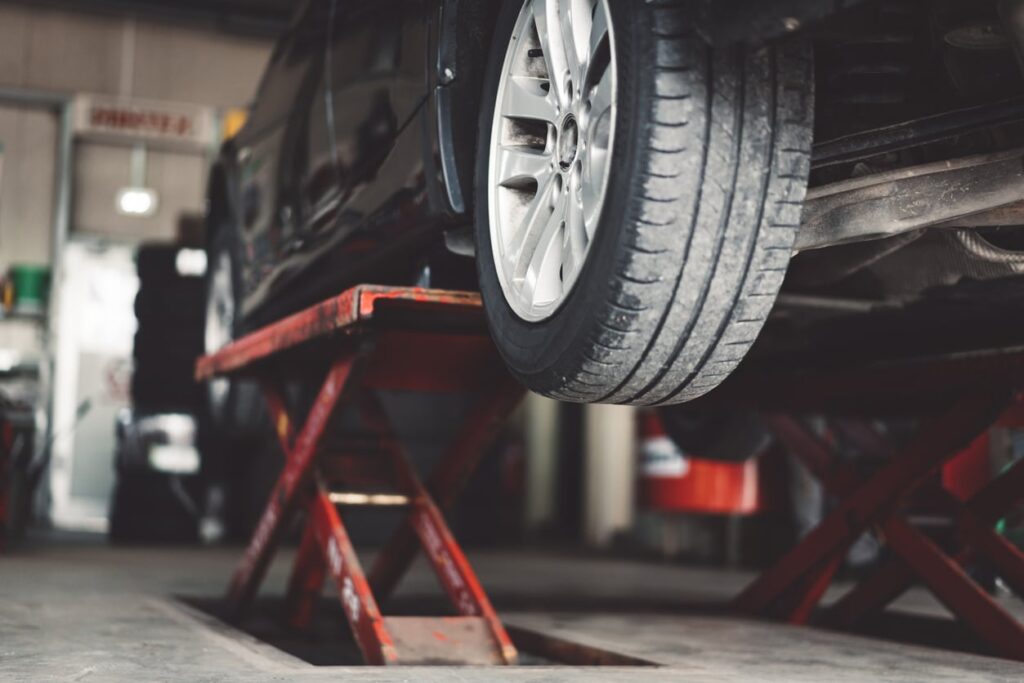What is ASE Certification?
If your automotive repair business is striving for excellence, you might be considering going down the route of ASE certification. When you’re aiming to run a successful automotive repair business, you want to be able to show off the skills and techniques of your talented technicians, and achieving this certification is a great way of doing just that.
Here, we explain what the certification involves, who can gain it and the advantages it can have for individuals, businesses and educators within the industry.
What is ASE certification?
ASE stands for Automotive Service Excellence, and the certification is awarded by the National Institute for Automotive Service Excellence. The organisation behind the qualification has been working towards improving the quality of vehicle repairs and services through testing and certifying automotive professionals. Essentially, the certification exists to protect the automotive industry, including the customer, shop owner and service professionals, helping to maintain standards and ensure future generations have all the knowledge, skills and tools they need to succeed in the industry.
Those with the certification demonstrate that they have a high level of technical expertise in their field within the automotive repair industry, providing extra peace of mind to potential customers.
Who can become ASE certified?
As a pre-requisite to qualify for your ASE certification, you must have some work experience under your belt. This varies depending on which tests you’ll be taking, so it’s always worth doing your research. But as a general rule, it’s usually between 1 and 2 years of hands-on experience in the area of expertise relating to the relevant testing series.
Below, we’ll take you through some of the benefits it can have for the different groups of people who might be able to gain ASE certification, from employers to students and service professionals in the automotive industry.
Employers
As an employer, you can put your employees forward for ASE certification, whether this means letting them know about it, supporting their learning or paying for the testing and allowing them time off to study as part of their career progression.

As an employer, having ASE-accredited employees can help you get customers since you’re elevating the calibre of skills in your body shop. By leveraging your employee’s certification and expertise, it can become easier to gain recognition and market visibility for your automotive repairs business.
Students & educators
ASE can provide training resources to help get the next generation of automotive service professionals up to speed with their education. But the benefits don’t end there – ASE can also provide support for teachers to help them offer the best education. Teachers can even gain an instructor ASE certification as long as they also hold another ASE certification, allowing them to showcase their expertise and pass it on to automotive service professionals.
Service professionals
Service professionals with a couple of years of experience are usually ready to undergo ASE certification. Using the skills, knowledge and techniques acquired so far in their careers, service technicians can choose to specialise in a particular area by taking tests in certain series. Some service professionals may choose to become master technicians, while others opt for more of an all-round approach. Either way, this offers an opportunity for them to take control of their career and take it to the next level.
Benefits of having ASE Certification
So, what advantages are there to having an ASE qualification? Here, we’re sharing a few of the main ones to consider when you’re weighing up whether the accreditation is worth the time and money.
Improved employability
As an individual with this certification, you can make yourself more appealing to employers since you’re demonstrating your advanced skillset and expertise.

But as a body shop, it can also be good for potential new service technicians to see that the majority, if not all, of your current team members already have this certification. This proves that the body shop is dedicated to providing the best service and quality and is open to investing in career development for staff. It can also be a great learning environment for somebody who is ready to begin their ASE certification journey.
Increased salary potential
Any additional relevant qualifications can put you in a stronger position when it comes to salary potential within the automotive repair industry. Since the ASE certification shows that you have a higher level of skills and expertise, this could help you get a promotion or additional responsibility in your current role, which can lead to a pay rise.
Gain more experience in current role
ASE can help with career development if you want to progress in the role you’re currently in. Gaining this formal certification is a good way to prove that your skills are at a higher level, which can allow you to have more responsibility and trust within your body shop. Whether this means learning new masking techniques for refinishing jobs or discovering new technology that could be used to carry out mechanical and electrical repairs, the certifications can offer valuable experience you might not gain otherwise. As automotive tape specialists at JTAPE, we’re dedicated to providing professionals with masking tapes and films to ensure you can achieve a high quality finish on your job with only a little practice, which can help with any certifications requiring these tools.
Industry recognition
The ASE certification is widely recognised across the industry, so by gaining this, you can boost the reputation of your shop and your skills as an individual.
Customer confidence
Many customers will be looking for reputable, trustworthy and skilled technicians to complete repairs on their vehicles. Therefore, they may be more likely to look for ASE-certified technicians. Not only does the certification give customers confidence that the job will be done to a high standard, but it can also help you justify higher prices or lead times.
Different ASE certifications
57 different ASE tests can be taken depending on your specialism or interests. Whichever tests you take can determine the direction that your career is headed in.
For example, those who take the Collision Repair & Refinish test series are demonstrating their ability to analyse and repair automotive collision damage and correct paint finish damage. Therefore, they might be more likely to pursue career development in collision repairs and refinishing.
For the full list of ASE certification tests available, check out the ASE website.

How to obtain an ASE certification
Each set of tests includes a study guide containing test specifications, task lists, sample test questions and training resources. These can be used to prepare you for taking the tests you intend to take.
Once you’re ready to get started, you can apply through the seasonal registrations online. You will need to organise your payment method before booking your test.
It’s also worth noting that to retain most ASE certifications, technicians must retest every five years. The retests don’t take as long to complete, but if you don’t pass, you won’t get to keep the certification.
How to become an ASE master technician
To earn ASE master technician status, you’ll need to complete certification in all required testing areas for that particular series. For example, those certified in tests B2 to B5 will be recognised as ASE-certified Master Collision Repair Technicians. Meanwhile, those certified in tests H1 or H2, plus H3 to H8 will be recognised as ASE-Certified Master Transit Bus Technicians.
However, just as you would with regular ASE certification, you’ll still need to retest to keep your master technician status. If one or more of the certifications in the series expire (usually five years after initial testing), you’ll lose the status until you take and pass the relevant recertification tests to reinstate it.
Can body shops become ASE-certified?
While a body shop can’t receive ASE certification, the individuals who work there can. So, if all your technicians become ASE-certified, you’d be free to advertise that your entire body shop is technically ASE-certified. But if only a few have gained the certification, you wouldn’t be able to make this claim and would instead need to specify which technicians have this additional qualification and which don’t.
Being in the know about all the training and progression opportunities available in the automotive repair industry can be handy. For more insights into the industry and how you can get ahead, check out the JTAPE blog.


